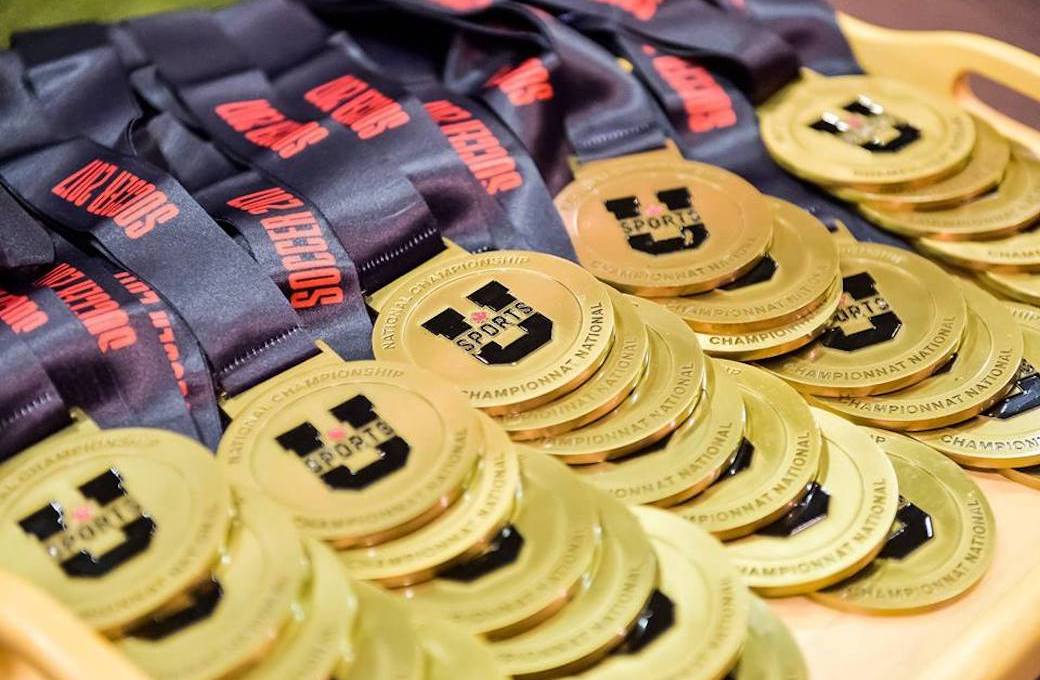Corporate
TOP 10 TUESDAY: Concordia jumps to No.1 in women’s hockey for first time in nearly two decades


Charlie Pinkerton

Note: As of Aug. 20, 2020, the Canadian Centre for Ethics in Sport (CCES) has made changes to how cannabis anti-doping rules are applied for student-athletes who compete only in U SPORTS or Canadian Collegiate Athletic Association (CCAA) events. While cannabis remains a substance that is prohibited in competition under the World Anti-Doping Agency’s (WADA) Prohibited List, for these athletes only, the CCES will not analyze samples for cannabinoids. Accordingly, these athletes will not receive an adverse analytical finding – AAF, or positive test – for cannabis. For more information, click here for the full CCES release.
The 2018-19 U SPORTS season is here, as is a landmark legislative change to Canada’s long-held drug laws.
This fall, it will be important for student-athletes competing under the banner of the national brand of university sports in Canada to be aware of how the legalization of cannabis for recreational use affects them.
Despite the drug’s legalization by the Government of Canada, cannabis will be one of many legal substances that appear on the World Anti-Doping Agency’s (WADA) Prohibited List.
The date for the legislative change to legalize recreational cannabis in Canada is today, Oct. 17, 2018. All U SPORTS fall sports including football, rugby, field hockey, soccer and cross country are well into their competitive campaigns.
As a banned substance on the WADA Prohibited List (which is the same list followed by the Canadian Anti-Doping Program (CADP)), there will be no change to cannabis’ usability for U SPORTS student-athletes. Like the Olympics, the CADP is compliant with the WADA Code and adopts the Prohibited List as one of its International Standards. This includes cannabis as a banned substance, as it does with other drugs such as morphine, oxycodone, fentanyl and heroin. There is a lengthy list of anabolic steroids also banned under WADA’s Prohibited List. As WADA is independent of any one country, its code is not affected by the legislative changes in Canada or any other nation. This means cannabis will remain prohibited in competition and at threshold for U SPORTS athletes in spite of any legislative changes made by the Canadian government.
Samantha Ebata, the senior manager of sport science and sport medicine at the University of British Columbia in Vancouver, says her department is wary that athletes may assume a change to Canadian law would be reflected in U SPORTS’ drug policy.
“The biggest concern with us is the confusion with legalization and what’s actually approved in sport,” Ebata said. “There’s a lot of athletes that are just unaware of the difference. So, with legalization, that just means knowing what that means for sporting and the social pressures that go along with that.”
Pierre Arsenault, the director of athletics and recreation at Mount Allison University in Sackville, N.B., echoed her worries, as student-athletes will still be culpable – even if they claim to have consumed cannabis while not knowing the government’s legislative change wouldn’t affect U SPORTS’ official drug policy.
“I think it’s certainly a legitimate concern for the sporting community that there would be assumptions made in that cannabis is now going to come off the banned substance list now that it’s been legalized,” Arsenault said. “Just saying, ‘I didn’t know,’ is not going to be a defence for student-athletes.”
It remains U SPORTS policy that student-athletes will be required to complete a Canadian Centre for Ethics in Sport (CCES) e-Learning program before they’re able to compete in any competition for their varsity team.
“It is ultimately the players’ – the student-athletes’ – the coaches, the athletic department’s responsibility for them to know the rules,” Arsenault added.
CCES is attempting to cater to the potential confusion brought on by the legislative change by publishing a Cannabis In Sport resource, which among other tools, provides a Frequently Asked Questions page about the impacts of cannabis’ federal legalization on sports and athletes participating within the rules of their competition framework.
“The key message is that cannabis’ prohibited status in sport is totally unaffected by legalization,” said Paul Melia, President and CEO of the CCES. “We strongly encourage anyone who works with athletes to download our Cannabis in Sport resource kit, and use it to help athletes make smart choices and protect themselves from anti-doping rule violations.”
Ebata’s department has already reached out to its university’s athletes explaining the unchanged policies, which all student-athletes across the country should look out for from their own schools.
Athletes can be suspended and have their names publically reported for violating anti-doping rules. In all cases, CCES carries out the results management and sanction process in the event of a positive test for any substance on the Prohibited list.
Using cannabis for medical purposes carries the same restrictions as any other prohibited medication. Student-athletes that have a prescription for medical marijuana products are subject to the medical review process under the CADP. This process requires the submission of an application as well as supporting medical and treatment information. Further information about the medical review process can be found on the CCES website at https://cces.ca/medicalreview.
Corporate
U SPORTS Staff
